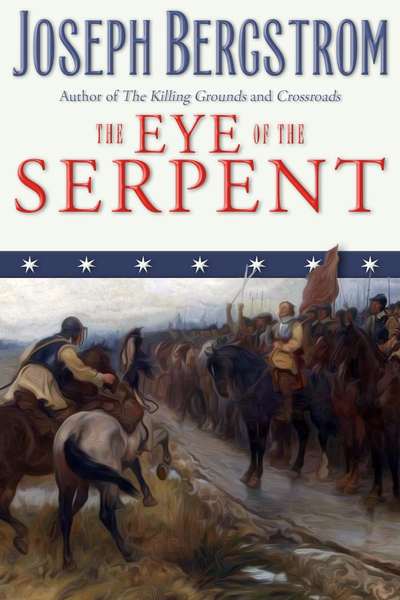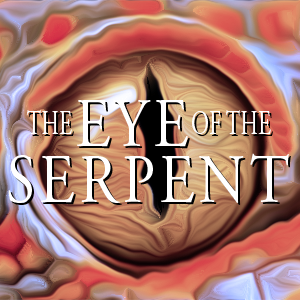In the land that soars as high as ravens, little could be found except for thin-faced children and hard, weathered men. The soil was thin and dust-colored, and outcroppings of rock seemed more plentiful than any green thing, except for the ancient, gnarled pines. It was not a land meant for men, some southerners said, but that was a matter of opinion.
Willym af Unintan af Calilis af Raven frowned across the field, silently staring at the unplowed ground before pulling the brim of his planter’s hat down, and whistling sharply to the team of mules drawing his plow. Walking ahead of him, his son, Waltyr, cast rocks from the field. The light pieces of ancient volcanic flow made for easy throwing, and the young boy seemed to be enjoying tossing the stones—that looked large enough to make a grown man struggle—with ease.
Little enough grew in the soil, despite the volcanic fertility. Out-of-season frosts, the high-altitude, freezing winters, and short growing seasons left little enough time for the hard men to plant. Some of the skillful planters could sow corn, but most of the land’s soil wasn’t right for the grain anyway, and those that didn’t have soil for corn sowed potatoes.
Some of the lower valleys and dales grew the tall ravengrass that wouldn’t grow any lower or higher, but Willym lived too high to make a living from haying. If it hadn’t been for the wars, he wouldn’t have had much of a living at all.
The scraping sound the plowshare made as it slit the soil open was complimented only by the slow clop-clops of the drought mules, and the steady footfalls of the two planters. The season was finally turning to early spring, where the nights no longer froze so hard, and the animals and plant life came to full bloom. The bloom was muted this high up, but the dull browns of winter were slowly being replaced by the dull greens of spring.
“Ho!” a voice boomed across the field, making Willym swear at his mules and draw the reins back to stop them. Waltyr stopped tossing rocks for a moment, as he turned back to look at his father, and Willym turned as well, to look at the edge of the field, where the voice had come from.
A musket and pistol were lashed to the plow handles, and his hand automatically closed around the stock of the musket as he saw a party of riders slowly walking their mounts forward across the yet-unplowed ground. They weren’t People of the Moon—that much was plain, for they rode horses, and the pagans abhorred the creatures—but some men could be worse than the People. It wasn’t at all uncommon for brigands and highwaymen to attack planters and their homes.
Willym had fought once in one of the wars against the southerners, and knew well enough that men—even those that weren’t pagan reivers like the People of the Moon or Border Riders—could be monsters. “Get back behind me, Waltyr,” he said.
The boy seemed startled, but did as told. Without seeming obvious, Willym undid the slip-knotted fastenings of the musket and pistol, leaving them within easy reach. The long gifttand sheathed at his belt would come later, once he’d fired both the musket and pistol. The long, wicked blade of the gifttand was enough to give any man pause. It was as heavy as a shortsword, and had been used by Ravenlanders for untold years to live off of the land, or to settle arguments with one’s neighbor in the old ways.
He could feel his blood sing.
Slowly, though, Willym’s grip on the musket relaxed as he saw the front rider. Dyn Haitun had been a firstrider for Clan Calilis for nearly twenty years now, and he and Willym had run along the ridges as boys; he was the furthest thing from a reiver. Behind Haitun, a young rider carried the billowing banner of Clan Calilis; a green field with red wildflowers arranged at intervals of seven.
“Hello, Willym!” Dyn shouted, grinning and making the lines of age ease away as he did so. He dropped from the saddle in a surprisingly accurate representation of how he’d done it when he’d been a teenager, but winced slightly as his knees and ankles took the shock of landing.
“Dyn,” Willym responded, leaving the team of mules to stand there as he strode over to greet the firstrider. Their different heights contrasted sharply as they embraced, but Dyn pounded Willym on the back to make up for his lack.
“It has been a while, lad,” Dyn said, laughing slightly as he stepped back. “I think you have more gray hairs than I do!”
“A fine, handsome look for a distinguished Raven,” Willym retorted, grinning. Behind him, Waltyr watched the two of them uncertainly, as did most of Dyn’s fellow riders, cloistered a span away.
“We have many miles to go, Fori-hnefoi,” the young rider holding the banner reminded Dyn, his look disapproving.
“Yes, yes, I know, Rycan,” the shorter firstrider responded, turning to scowl at the banner-bearer. The young man shrugged, and turned his gaze away. Swiveling back to Willym, Dyn said, “We’re riding to Lord Prain’s hall,” by way of explanation.
“What did the Prainsmen do this time?”
“Ah, well, nothing, actually,” Dyn said. “Lord Prain’s youngest son—Tynus, or some such—was sent to the Clan’s hall,” he pointed northeast, into the hills, “bearing news.”
“News from the Prain,” Willym repeated simply, letting old bitterness seep into his words. Old feuds faded slowly.
“Yes, well, that was about what I said,” Dyn said, laughing a little before his face became very serious. “They say the People are moving. Hundreds of ships, all sailing down the Western Horn, burning the villages as they go.”
Willym felt himself go very still at the mention of the People, and he glanced west absently, as if expecting to see sails somehow, despite being nearly a hundred miles inland.
“You owe no debt to the Clan,” Dyn said slowly, “and we all know that you earned what you have when we rode against the Pental. . . . But my Lord Calilis had hoped his old firstrider would ride with him again.”
“Where is he; the Old Bear?”
“On the main roads; we’ll meet him when we reach the coast.”
Willym looked back west, his eyes very distant as he thought carefully. Finally, he said, “I rode to war many times, Dyn. I won’t do it again. Not unless I must. I know the stridsefttand too well, as it is.”
Dyn frowned a little, as if surprised by his old friend’s words.“You won’t ride with us?”
The Ravenlander planter shook his head. “I will stay here; with my family.” His expression was carefully controlled. “A man has to protect his family, Dyn. That is my duty.”
The firstrider nodded slowly. “He does,” he agreed, before turning to remount his horse. “No hard feelings—I understand,” he said. “Now, we’ve got country to cover before we rendezvous with Lord Calilis.” He touched his hat in a mock-salute. “I’ll come by for dinner sometime, when we aren’t going off to kill pagans.”
“I’ll enjoy it.”
Dyn grinned suddenly. “We’ll be on our way to Prain Bay, if you change your mind.” He winked at Waltyr, making the boy shift on his feet nervously, before spurring his mount into a trot. The rest of the riders followed behind, rapidly becoming small, distant figures.










Comments (0)
See all